SA Weekend cover story: Black Lives Matter exposes the shocking truths of Indigenous disadvantage in Australia
The Black Lives Matter movement has swept the world. But closer to home it has highlighted the shocking Indigenous rates of incarceration, Black deaths in custody and the hard daily life struggle for many Aboriginal people.
SA Weekend
Don't miss out on the headlines from SA Weekend. Followed categories will be added to My News.
- The Stolen Generation footy star and the nun who changed his life
- The youth program every teenager should know about
- Brainwaves: Take your your weekly general knowledge quiz
- How to get the most from your Advertiser digital subscription
Heather Agius knows the young man on the TV screen. So does Pat Waria-Read. They regard him with some affection. Both women have long known his grandmother. But they are not here for a pleasant catch-up. Their job is to deliver a tough, serious message.
“Only you can change your life,’’ Heather Agius says. “We can’t do it for you. It’s up to you.’’
Pat Waria-Read tells him: “You don’t want to give your old nanna any strife.’’
This is the Nunga Court in Port Adelaide. Troy (not his real name) is only 22 but has a history of offending and serving prison time.
He is appearing in the court, via a video link, from Port Augusta prison where he has been in custody since March charged with a range of offences, including theft and serious criminal trespass.
Like all in front of the Court this day, he is already in prison and has a troubled history.
His father died young, there is a family history of drug abuse and early death.
A relative passed away just before his most recent arrest.
Troy has his own history of drug abuse.
Troy has pleaded guilty to the charges and Magistrate Paul Bennett says he will sentence him in two weeks.
On the screen we see Troy sitting in a bare room with a green backdrop in his baggy prison clothes.
He’s engaged with the process, listening carefully to the two Aboriginal elders who sit on the court’s bench with Magistrate Bennett.
Troy tells Bennett, as well as Aunty Pat and Aunty Heather, that he is ready for change. That he doesn’t want to live this way anymore.
“When I get out of jail I will come back to Port Augusta to get away from the city and stop my drug use,’’ he says.
He talks about finding work, of living with his grandmother, of becoming a productive member of society and his community. He comes across as genuine and sincere.
But that is not always enough. The odds are stacked against this being Troy’s last time before a court.
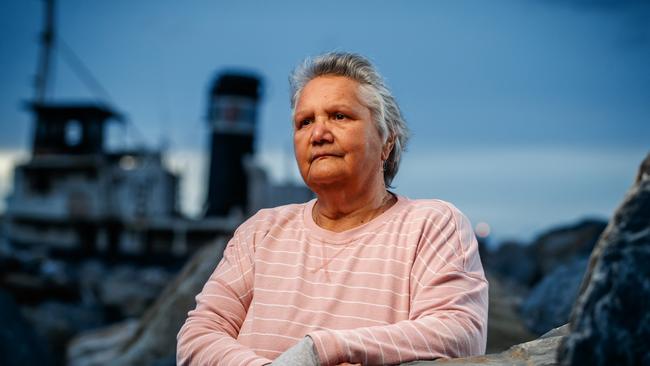
The Nunga Court started in 1999 as Australia’s first Aboriginal sentencing court.
It’s a closed court, but SAWeeklend was granted permission to attend.
Bennett says “the law’s exactly the same, the sentencing law is the same, but the way we get there is very different’’.
The real power in the Nunga Court doesn’t lie with the Magistrate, but with the Aboriginal Elders.
There are six cases before the Nunga Court today.
All admit to drug and alcohol dependencies, some have mental health issues that are not being treated correctly in jail.
This is not the first time in a cell for any of them.
The two women facing the court have been victims of domestic violence.
This is the reality behind the shocking rates of Indigenous incarceration.
Aboriginal and Torres Strait Islander people make up around three per cent of Australia’s population, but about 30 per cent of those locked up in jail.
Indigenous men are 15 times more likely that non-Indigenous men to be in custody.
The figure for women is 21 times. The Federal Government has a target under its Closing the Gap program to align Indigenous and non-Indigenous incarceration rates. By 2089.
These horrific incarceration rates of Indigenous people and of Aboriginal deaths in custody have again come into sharp focus as the Black Lives Matter movement sweeps the world. The spark was the killing of George Floyd by US policeman Derek Chauvin in May in Minneapolis, Minnesota. The vision of Chauvin with his knee on the neck of Floyd for almost eight minutes was seen around the world. Floyd’s plea before he died that “I can’t breathe’’ became a rallying cry for those who believe this kind of injustice is all too common and has been happening for far too many years.
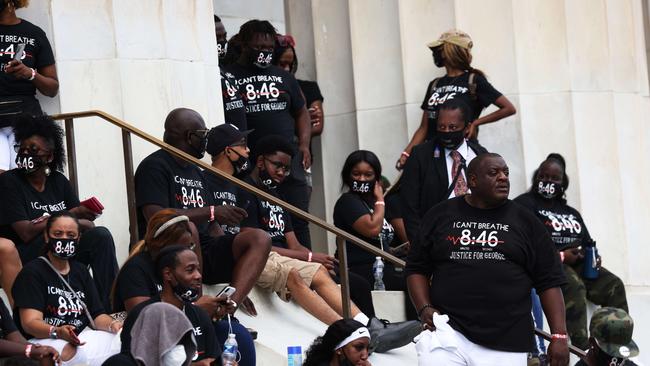
In Australia, tens of thousands of protesters took to the streets – in sympathy for Floyd, but also to highlight Australia’s treatment of its Indigenous people. Not just the incarceration rates or the deaths in custody, but the poor health and education outcomes. The endemic racism of institutions. The early deaths. Indigenous people die, on average, eight years earlier than non-Indigenous. The poverty. The median income for Indigenous households is 65 per cent of that of non-Indigenous. Unemployment. Around 49 per cent of Indigenous people are employed, compared to 75 per cent for non-Indigenous people.
The fact that babies and children are still being taken from families in what many believe to be a modern-day extension of the stolen generations.
SAWeekend spoke to a broad range of Aboriginal South Australians to ask about the ongoing problems, about what can be done and hope for the future. There was certainly anger at hundreds of years of injustice, but also resolve, pride in culture and a belief that the answers to many of the problems lie within the Indigenous community and a much greater degree of self-determination.
Garth Dodd is head of the Council of Aboriginal Elders, and a member of the SA Parole Board, and says while Floyd was an American, his experience was familiar to any Indigenous person.
“That’s exactly how it’s been for Aboriginal people in this country, we have just been knelt on all these years and kept there,’’ he says. “Don’t you dare get up because we are not going to allow you to.’’
The unknown is whether this BLM movement will lead to genuine change for Australia’s Indigenous people or whether it’s just another moment that will pass. Dodd says he is an optimist. He senses a different atmosphere, a desire from non-Indigenous Australians to learn about history and to march alongside Aboriginal Australians. But he’s been wrong about that before.
In 2007, Prime Minister Kevin Rudd delivered an apology for the stolen generations. Dodd was MC at Elder Park when 15,000 people turned up to watch Rudd give the apology. It was an emotional day. Dodd says he was in tears.
“This might be the day of change for all of us, everyone, not just Aboriginal people,’’ he remembers thinking. “We were floating for the next two or three days thinking about it, thinking ‘shit this will be a big change for us’.’’ And then? “Another kick in the guts. A serious kick in the guts. You say ‘all right, do we crawl back in a hole again do we?’ It was absolutely awful.’’
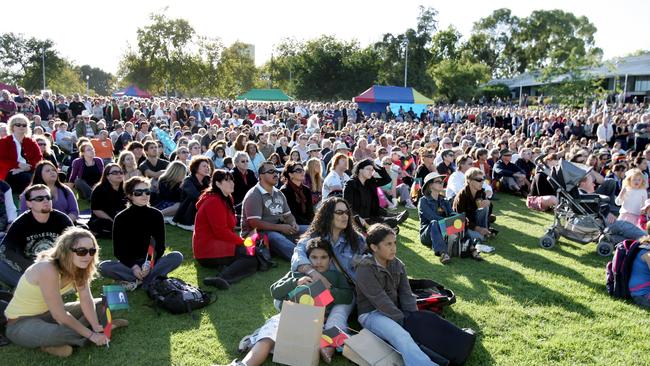
Despite the apology, despite 1991’s Royal Commission into Aboriginal Deaths in Custody and many other similar reports, very little appears to have changed over recent decades.
Since the landmark Royal Commission, 434 Aboriginal and Torres Strait Islander people have died in custody. The Commission found Aboriginal people didn’t die at a greater rate than non-Indigenous people, but the sheer numbers incarcerated put them at risk. Some like to note that 58 per cent of Aboriginal deaths in custody are attributed to “natural causes’’. But the question of how many of them would have died if not in custody can’t be answered.
There have been 10 Indigenous deaths in custody in South Australia since 2009. In 2016, Wayne Fella Morrison died in hospital after being restrained by numerous prison guards in Yatala, following an earlier confrontation. CCTV vision of the 29-year-old Morrison being held on the ground by numerous guards was all too redolent of the death of George Floyd four years later. The inquest into the death of Morrison is ongoing, but prison guards on duty that day have refused to give evidence.
The anger in the Indigenous community about their treatment at the hands of police and the justice system is very close to the surface. You don’t have to dig too far to uncover stories of brutality and poor treatment.
Of the grandmother pinned down by multiple police and then charged with assault because she moved a knee that was hurting her and brushed an officer. Of the young, well-dressed Aboriginal man who was on his way to a job interview but was pulled over outside the potential employers’ office. He didn’t get the job. More vision. This time of a policeman seemingly punching a young man on the ground at Kilburn in June, even though he was pinned down by several officers at the time.
Cheryl Axleby is head of the Aboriginal Legal Rights Movement and says the treatment of Noel Henry in Kilburn would be of no surprise to any Aboriginal person.
“That’s the treatment that every day happens to a lot of Aboriginal and Torres Strait Islander people,’’ she says. “This is nothing new to us. That brutality and the force.
“All we are asking is to be treated like every other citizen in this country and have the same accountability for police and prison officers as there should be for everybody. I have seen time and time again the system causes more harm, the prison system causes more harm. It actually brutalises people. It destroys their dignity and it dehumanises them and I think we can do better in this country.’’
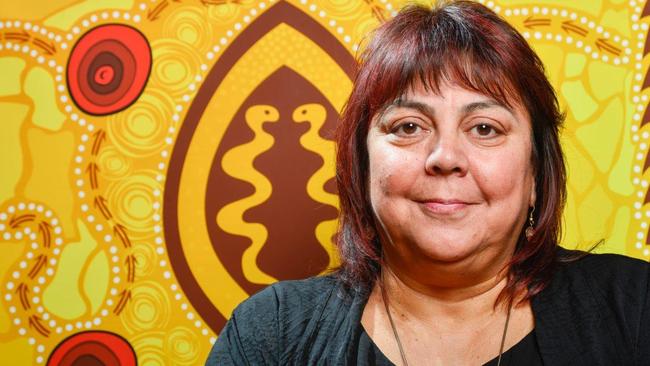
SAPOL assistant commissioner Ian Parrott contends the relationship between police and Indigenous people is “very positive’’.
“From our perspective there has been a lot of good work that has been going on with our Indigenous communities for a very long period of time,’’ he says. He rejects the notion that SAPOL itself is racist.
“Is it (racism) wide spread? No, absolutely not. Are there instances where it does for individual police officers pop up? Yes, it does but I can reassure people we do address it.’’
He admits the Kilburn incident wasn’t a good look. “We certainly appreciate the perception that footage gives to people and it’s not an image we are comfortable with. But we do ask people to perhaps just reserve judgment on it until such time as the full facts are known.’’
Subsequently, an internal investigation by the Anti-Corruption Branch cleared the officers of any fault and said action taking during the arrest were “reasonable’’.
Axleby believes police shouldn’t be allowed to investigate themselves and has called for an independent body to investigate complaints against police.
She also says more needs to be done to keep Indigenous people out of the justice system, because all the evidence suggests once you are on that path it is very difficult to step off.
For a start, she says the age of criminal responsibility must be raised to 14 from 10 for all children.
“The evidence clearly demonstrates that children between the age of 10 to 13 years do not have the mental cognitive development aspect to be able to think about the consequences of their actions,’’ she says.
Axleby would also like to see bail and remand laws changed.
A 2018 report by the Australian Law Reform Commission found Indigenous people were 11 times more likely to be held in prison awaiting trial or sentence. The report also found that as many as one-third of Indigenous prisoners were awaiting trial or sentence and that a “large proportion’’ do not receive a conviction or are sentenced to time served.
The ALRC reports says this means many Indigenous prisoners are going to jail for “low-level offending’’. This often means non-payment of fines or public drunkenness or homelessness.
The ALRC report was released in 2018. The Royal Commission into Aboriginal Deaths in Custody 27 years before that. Both reports cover similar ground and come to similar conclusions. That unless the underlying reasons for Indigenous incarceration are dealt with, then change will be difficult.
The Royal Commission delved deeply into the history of Australia’s colonisation and its impact on the people already here. It spoke of dispossession, the theft of land, the brutality suffered, the deliberate destruction of culture and language. It also pointed out that history was still very much alive to Indigenous people today. “It is burned into their consciousness,’’ the report says.
“Non-Aboriginal Australia has developed on the racist assumption of an ingrained sense of superiority that it knows best what is good for Aboriginal people,’’ the Royal Commission writes.
And the Royal Commission said the worst of all relationships was between Indigenous people and the police as the enforcers of the law.
Irene Watson is pro vice chancellor Aboriginal leadership and strategy and professor of law at the University of South Australia. She was involved in the establishment of the Royal Commission and argued for the body to look at the underlying issues that led to such high rates of Indigenous incarceration. Watson says much of the work of that Commission has been ignored. Why? “Largely its apathy. It’s not a priority and it’s all bundled up in racism.’’
Watson says this has been the story of Australia since white settlement. “You say where did all this begin? It began the day Captain Cook planted the flag and they stole the land. Australia is a stolen continent. It’s a colonised continent. The police were agents of the colonial project.’’
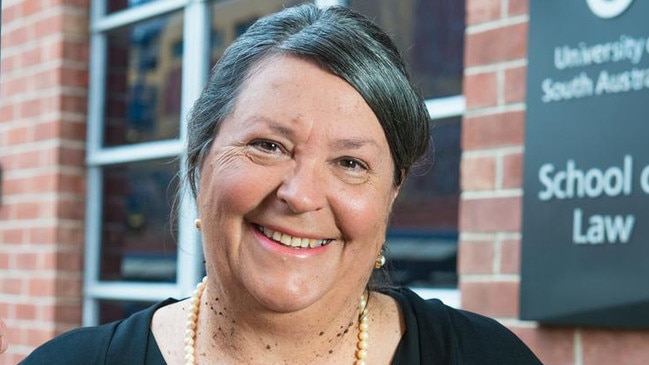
She points to legislation such as the Aborigines Act, which was not abolished in South Australia until 1963, and later in some other parts of the nation. The Act exerted total control over Aboriginal people. It made every child a ward of the state until they were 21 “notwithstanding that any such child has a parent’’. It determined where people could live, who they could marry, where they could work, in some places how much they could be paid. A 2006 federal parliamentary report into Indigenous stolen wages said the purpose of the “protection acts’’, was “with a view to encouraging the conversion of the children to Christianity and distancing them from their Indigenous lifestyle’’.
This is not that long ago. Watson grew up under the Aborigines Act. Watson says Australia hasn’t come to terms with it’s colonial past. Whether it’s former prime minister John Howard decrying the “black armband’’ view of history or current prime minister Scott Morrison declaring Australia didn’t have a history of slavery. And she says until we acknowledge the past, the same mistakes will continue to be made.
“Change is not going to come easy,’’ Watson says. “But until we reset the dial and go back to the initial point of contact, and the initial point of colonisation, and work to understand the history of this country and how white privilege has been built, and that white privilege has built itself upon that history of colonisation and rethink the relationship with Aboriginal people, we will stay on this treadmill.’’
The Royal Commission’s report made 339 recommendations to be implemented by state and federal governments. In 2018, Deloitte Access Economics found 64 per cent had been fully implemented, 14 per cent mostly implemented, 16 per cent partially implemented and 6 per cent had not been implemented.
Deloitte also found that South Australia was one of the worst performing states, implementing fewer than 60 per cent of the recommendations in full. According to Deloitte, SA has failed to implement a number of recommendations, believing them to be a Commonwealth responsibility. Many of these recommendations relate to self-determination and funding of Aboriginal organisations.
The body responsible for monitoring the implementation of the Royal Commission recommendations was disbanded in 2005, according to a government spokesperson, who also said the government was now examining whether a new “separate body is needed that can manage and review the implementation of these recommendations’’
The spokesperson also claimed SA had “implemented or progressed’’ almost 95 per cent of the recommendations. According to the Deloitte report that is a figure that can only be reached by including a large slab of recommendations it deemed to be only “partially complete’’.
Another landmark moment was 1997’s Bringing Them Home report, a national inquiry into the forced separation of Aboriginal and Torres Strait Islander children from their families. The “Stolen Generations’’ report would eventually prompt the Rudd apology. In 2017, an update on the report again stated the damage that had been done to Indigenous communities when families were ripped apart: “The resulting trauma has been passed down to children and grandchildren, contributing to many of the issues faced in Indigenous communities, including family violence, substance abuse and self harm.’’
That 2017 report also found most of the recommendations from the 1997 report had not been implemented and family separations were still happening.
This is a fact Aboriginal Children’s Commissioner April Lawrie is only too familiar with. Lawrie was the first to fill the post which was created in 2018 by the Liberal Government. But she says the child protection system in SA is “highly xenophobic, we know there are systemic racism issues in the way policies and procedures are implemented’’.
“The system is full of a work force that is so far removed from the Aboriginal experience and many of our families and communities say that the system is an instrument of assimilation,’’ she says.
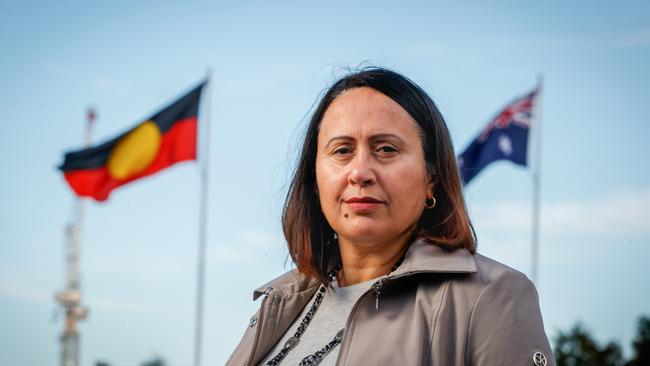
The stats back up the view that Aboriginal children are being removed from their families at increasing rates. A report released in May by the Office of the Guardian for Children and Young People says 34 per cent of all young people in care are Aboriginal. The rate of Aboriginal 0-17 year olds in care is 76.7 per 1000 children. For non-Aboriginal kids, that number is 7.4. For every 10,000 Indigenous children, 22.3 are in detention. The rate for non-Indigenous children is 0.7.
“When our mob say the stolen generations in the past is in the present and we don’t want it for the future, that’s what they are talking about,’’ Lawrie says.
Lawrie says the system too often ignores the legislated Aboriginal Child Placement Principle, which mandates that if a child is removed from a parent, it must be placed within its family, cultural and community context. The Guardian’s report says the number of children placed in accordance with the principle had fallen from 76.4 per cent to 62.7 per cent in the decade to 2019. The government says that number was 64.4 per cent at May 31 and the aim is to raise it to 70 per cent.
“I think the system is very harsh against our Aboriginal families and in particular, our poor families,’’ Lawrie says.
Lawrie says she has heard “ghastly’’ stories of children being removed with no prior contact with the families. Even taken from hospitals soon after birth.
“It’s heartless, it’s merciless and it’s cruel and it doesn’t even give our mothers a chance. I tell you, the department, their workers are looking, are looking for a reason to remove our children. It makes me sick to the core.’’ Department of Child Protection acting chief executive Fiona Ward acknowledges removing children is “particularly distressing for Aboriginal families’’ but insists any such decision is a “last resort’’.
Lawrie understands that there are problems in some families, There can be abusive partners, family violence and addiction problems. But she believes the system needs to be involved sooner rather than later in the process. That it needs to talk to other family members to find a way to keep the child within the broader family.
Because, Lawrie knows, once a child enters the child protection world, the chances of that child also finding themself in the justice system are pretty high.
“We know from the child protection data and reports that once the state intervenes, the life course outcomes for that Aboriginal child isn’t good.’’
Pat Waria-Read is a force of nature. Fierce and direct, the 72-year-old Waria-Read lives in Port Adelaide and works tirelessly for her community. Waria-Read is an elder on the Nunga Court and runs, with her friend Margie Callaghan, the Salt and Pepper Outreach Team that supports Aboriginal women in prison. Often, she picks up the pieces after the child protection system has shattered a family.
“You know where that mother then goes (after she loses a child)? On the street, into drugs, into jail,’’ she says.
Waria-Read offers support that is beyond the prison system. Sometimes it’s picking up a woman who has been released from prison at 7pm with no money and no transport. Or helping with a court appearance. Sometimes it’s trying to help a women reconnect with her family.
“Generally they are not travelling too good by the time they see us, because they are really upset about some things, about losing their house, losing their kids,’’ she says.
She says the numbers of Aboriginal women finding themselves in jail is at “crisis level’’. She sees mothers and daughters, older sisters and younger sisters
Waria-Read has no time for politicians. “Do you think (Premier Steven) Marshall gives two hoots about Aboriginal people?’’ Not that she thinks Labor is any better. “When Jay Weatherill was in here, he said he was going to be all this wonderful thing for us, but he never did a damn thing.’’
Waria-Read carries a well-earned anger at the system. She says services that are available to help the poor and disadvantaged are being cut. She points to a cockroach-infested house, with no electricity or gas where she took a just-released prisoner. She points to the 50-year-old Tauondi Aboriginal Community College in Port Adelaide that has just lost its funding, which is a particular source of angst.
“You are not educated, so you can’t get a job, you need money because your family is poor, you then steal, you then end up in the courts, and then your life is mapped out for you,’’ she says.
But for all that, Waria-Read retains a sense of hope. She also hosts fortnightly meetings at the Aboriginal Berean Church in Cheltenham, where Elders gather to talk with each other and the younger generation, counselling, offering advice.
The church is Rachel Bailey’s home for the moment. The bracelet on her ankle signals her home detention status. She is on bail, and says her drinking sometimes gets her in trouble, but this time was the first in a few years where she ended up in jail.
Bailey, who gave permission for SAWeekend to use her name, says the meetings and the guidance of Waria-Read and Callaghan “gives the girls hope’’.
“They let the girls know they are loved and supported when everybody else has given up,’’ Bailey says.
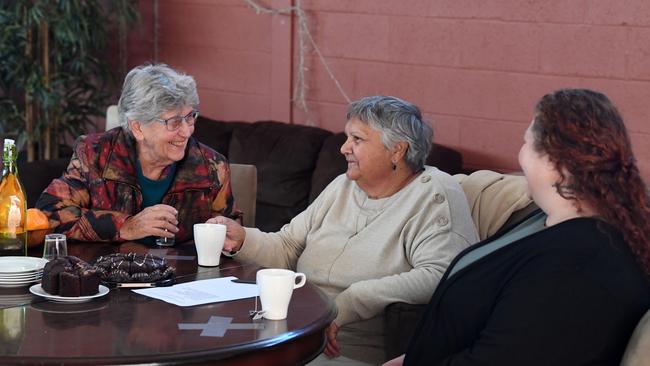
What Waria-Read wants is for governments to listen. To listen to Aboriginal voices and stop assuming they know best. It’s a sentiment repeated by many. Law professor Irene Watson: “Aboriginal people have been telling states forever what to do.’’ Children’s commissioner April Lawrie: “The system needs to let go of its power and actually embrace Aboriginal self determination.’’
In the same street where Waria-Read lives in Port Adelaide sits Tiraapendi Wodli. Tiraapendi Wodli represents a different approach. It’s a Justice Reinvestment project that is Aboriginal led and designed. Tiraapendi Wodli, which means protecting home in the Kaurna language, started in 2018 and aims to target the underlying causes of crime by helping Indigenous people find the services and support they need. It runs programs as diverse as fitness classes and mental health first aid workshops. It runs programs to help people gain a driving licence. It’s a project supported by the Red Cross and program manager Deb Moyle says the idea is that people come to them to ask for help and can feel comfortable doing that because it’s not part of government.
“While the justice people are working with the young people, we need to be working with the families. If the family is not part of the journey of change it just quickly diminishes back.’’
Former Supreme Court Justice Robyn Layton is chair of the organisation and says the goal is to keep people out of prison. Layton hopes, if nothing else, the economic argument will convince the government. She says it costs $2459 a day to keep a young person in detention and only a $193 a day to monitor them on community supervision.
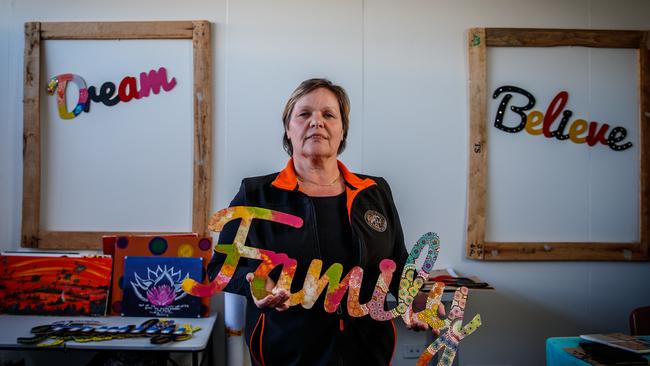
Moyle wants to change the conversation.
“Quite often we only hear the negative aspects of being Aboriginal,’’ she says. “Yet we have 50 per cent of the community in Port Adelaide, children, on school card. The other 50 per cent that aren’t, they are doing ok. We don’t hear about the ok families.’’
There is a thread of optimism that runs through Moyle and everybody else SAWeekend interviewed. They don’t believe change will come quickly, but they believe it will come. There is a pride in just surviving to keep fighting.
“I fought all my life to retain who I am,’’ Waria-Read says. “I am an Aboriginal, black, proud, mother, grandmother and great grandmother. I am not just a grandmother of my children I am a grandmother for all the Aboriginal children who live in this world.
“I am still battling in the hope that Australian people will change their attitude towards the Aboriginal communities in Australia.’’
For more information go online.
For more on Salt and Pepper Outreach email here.


